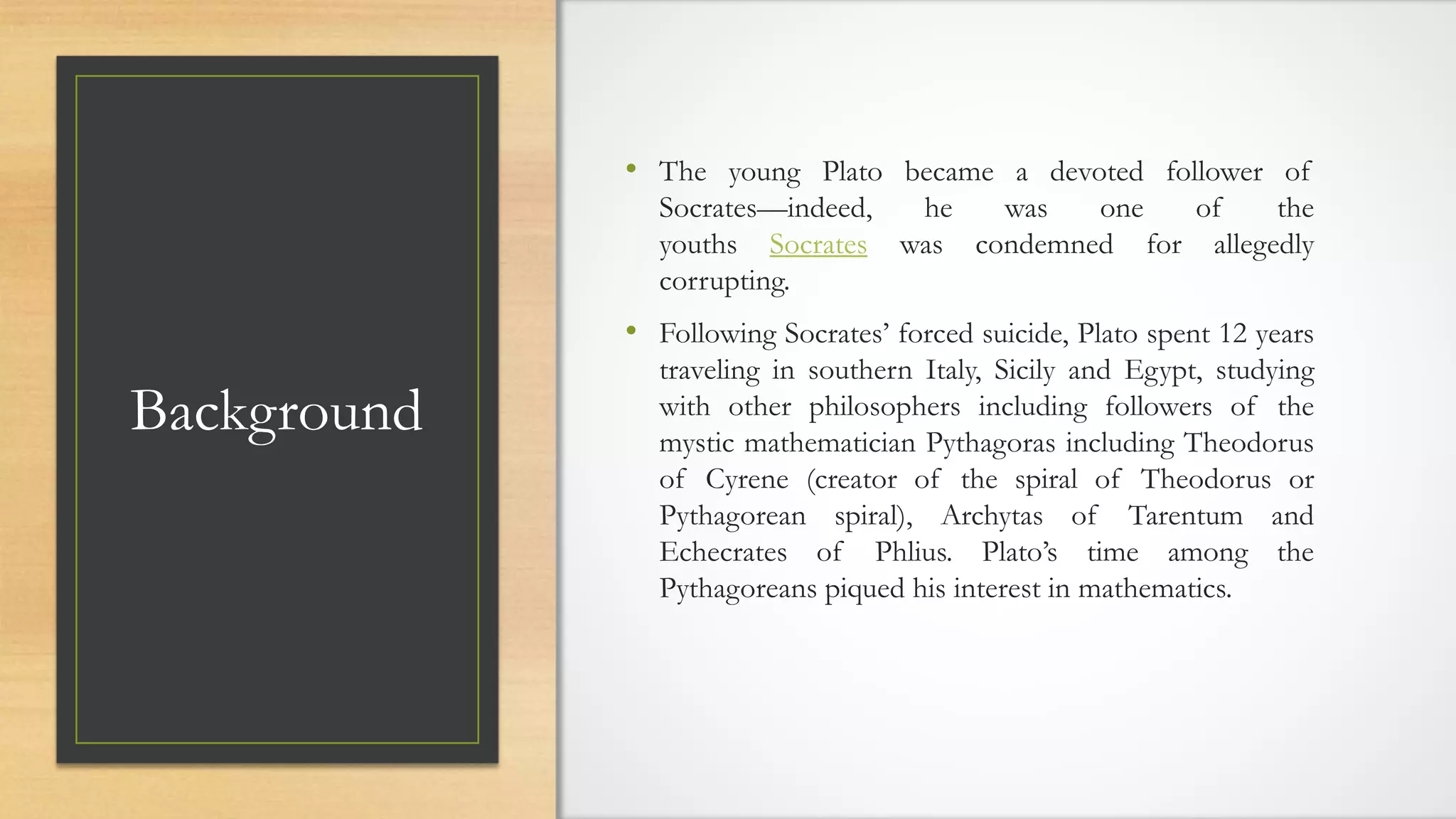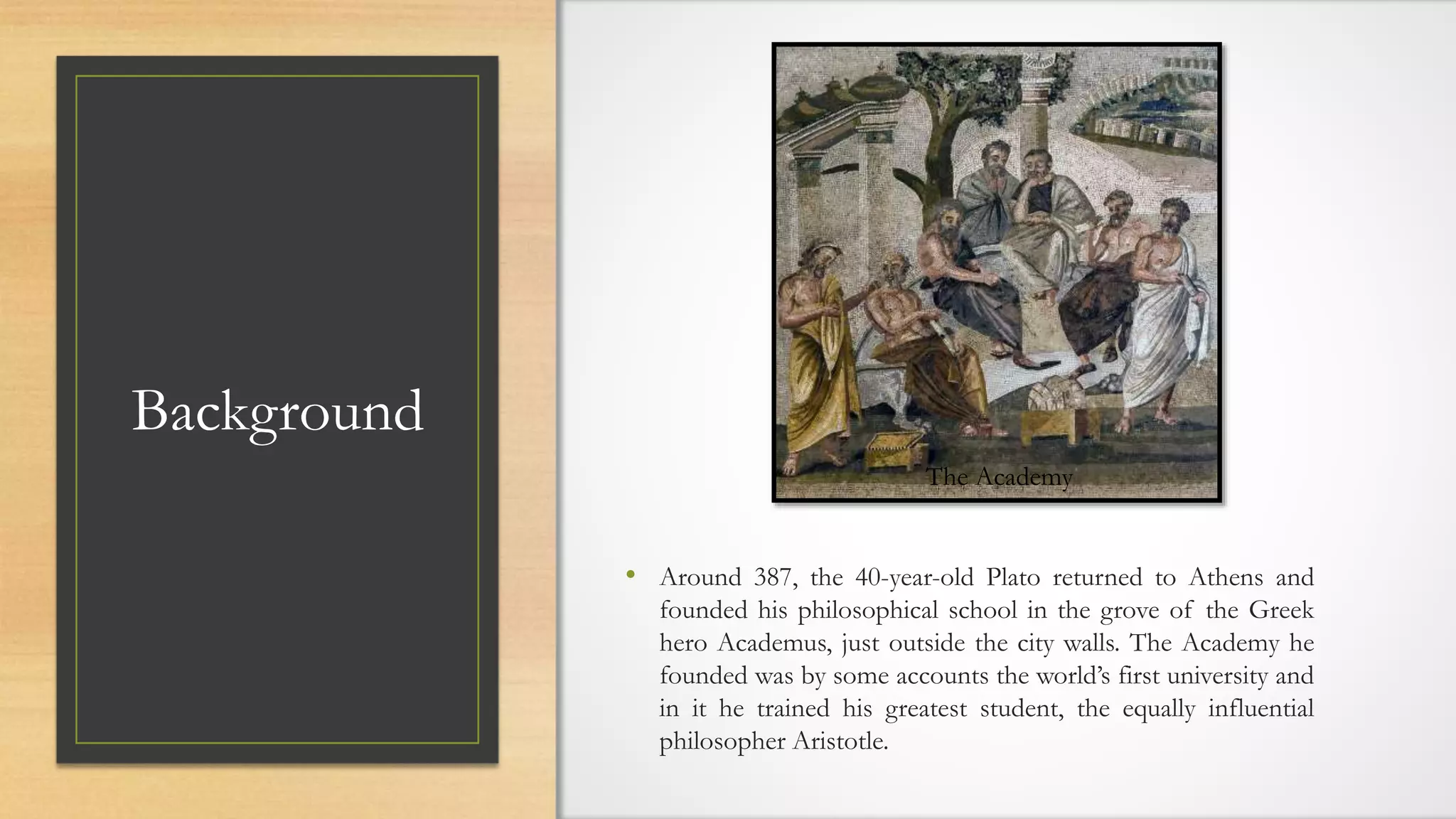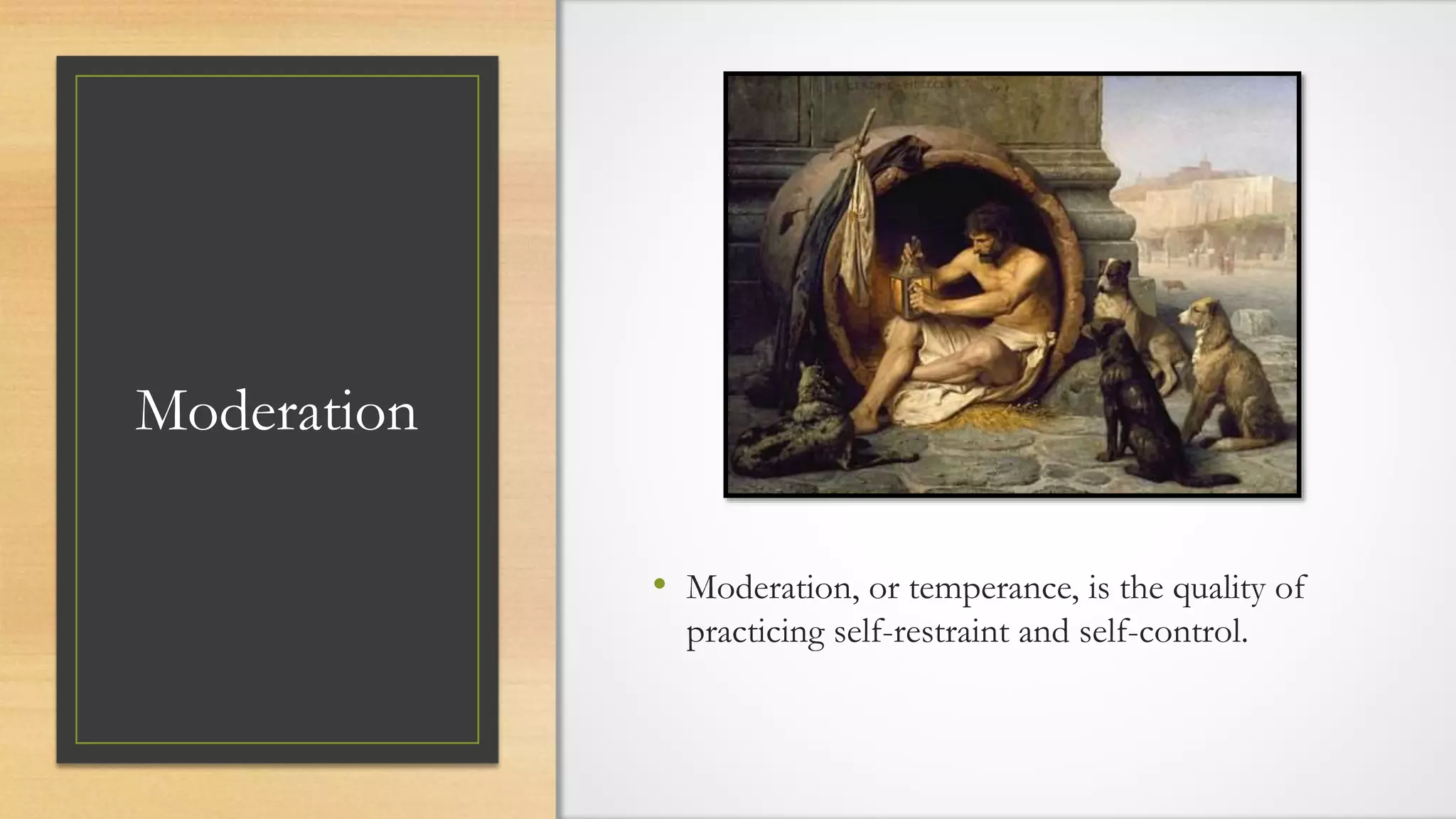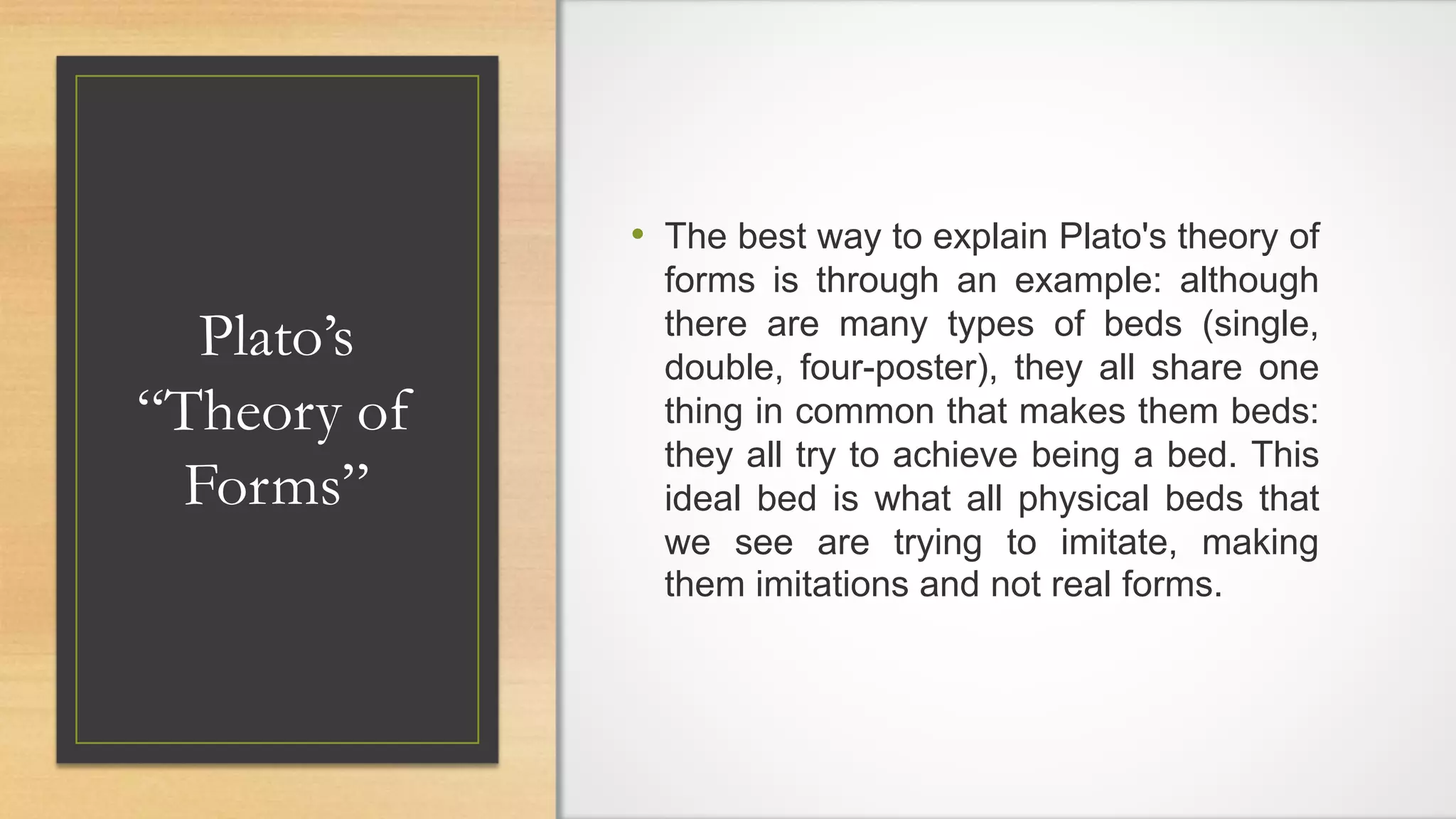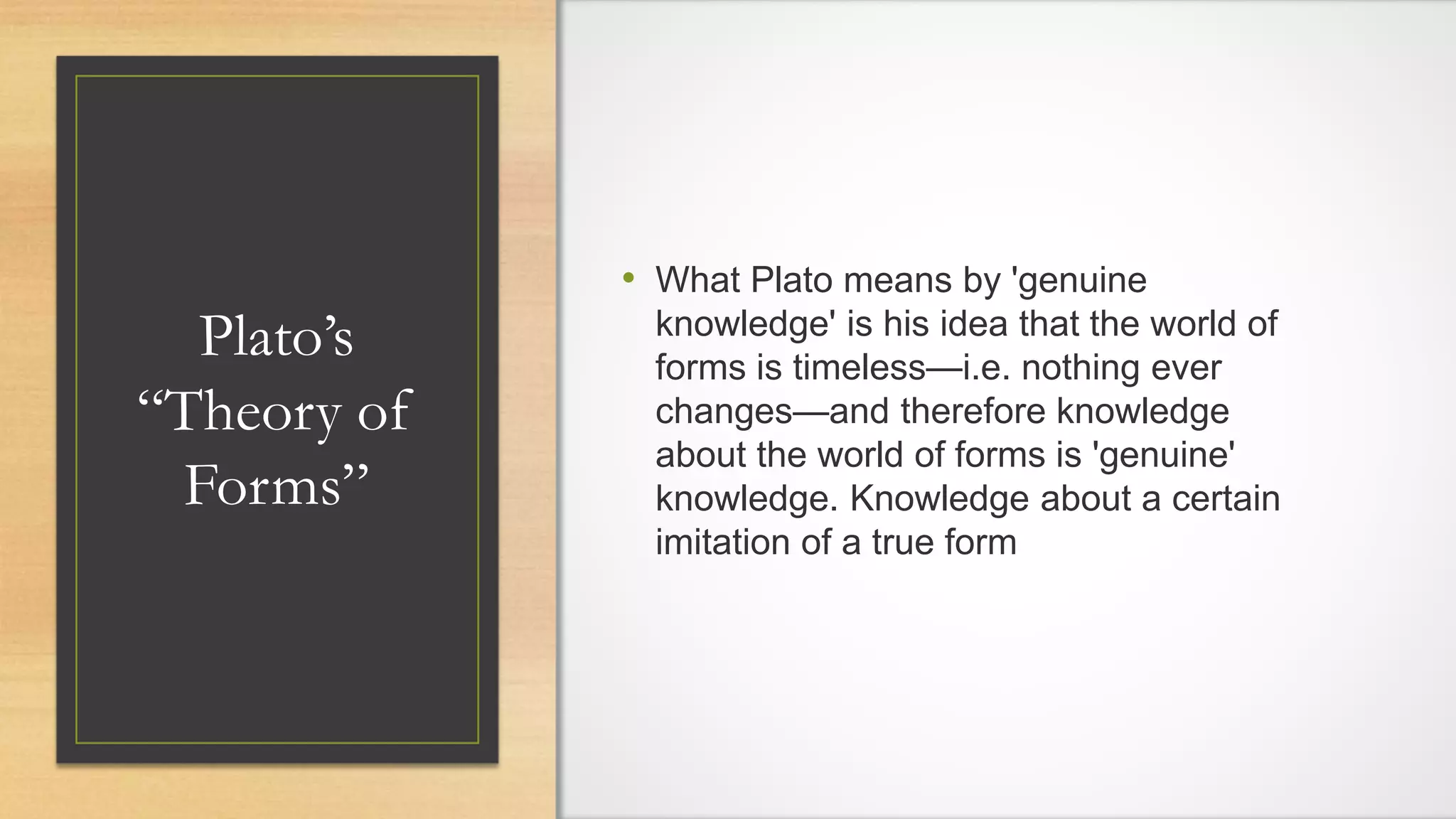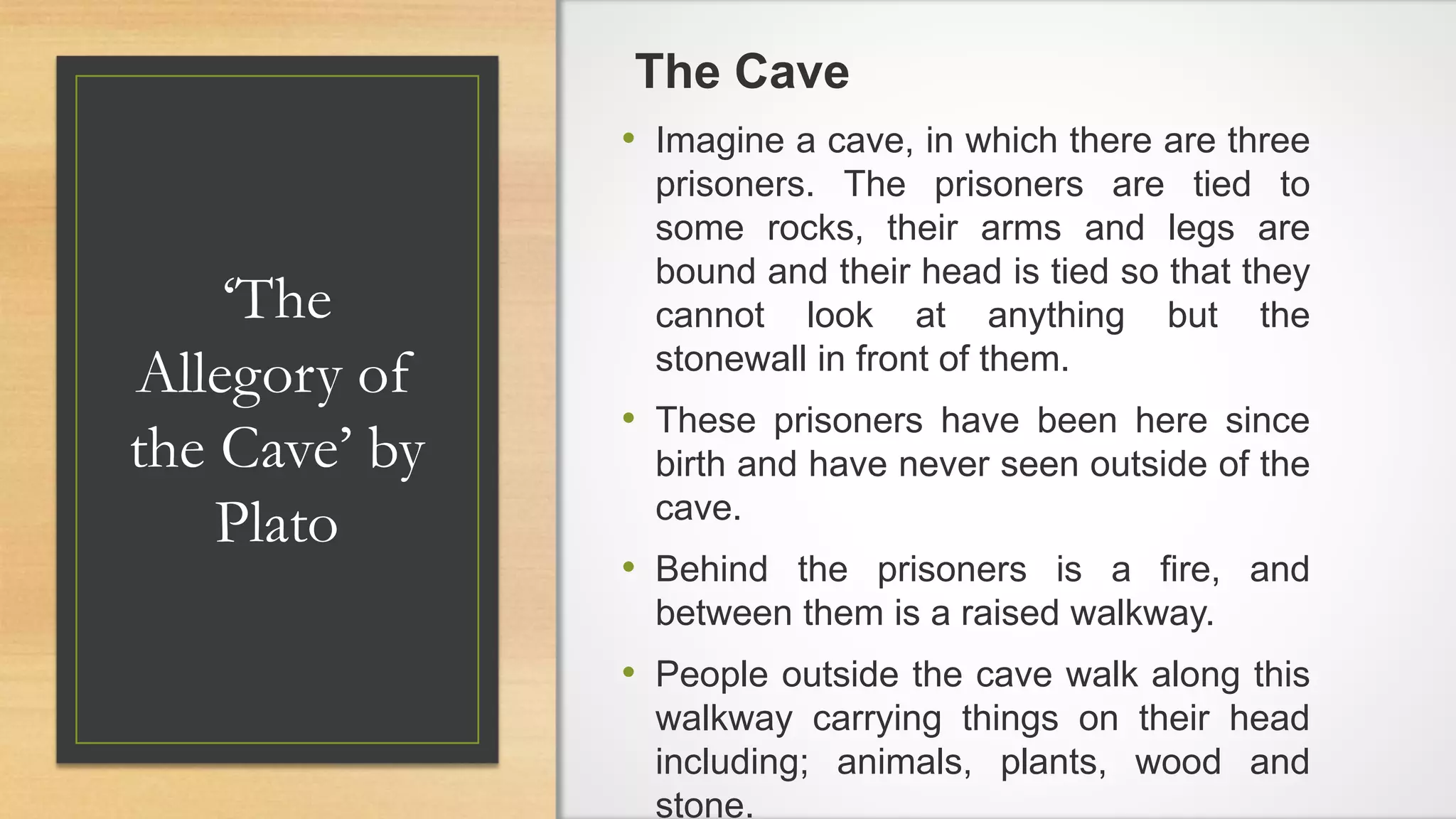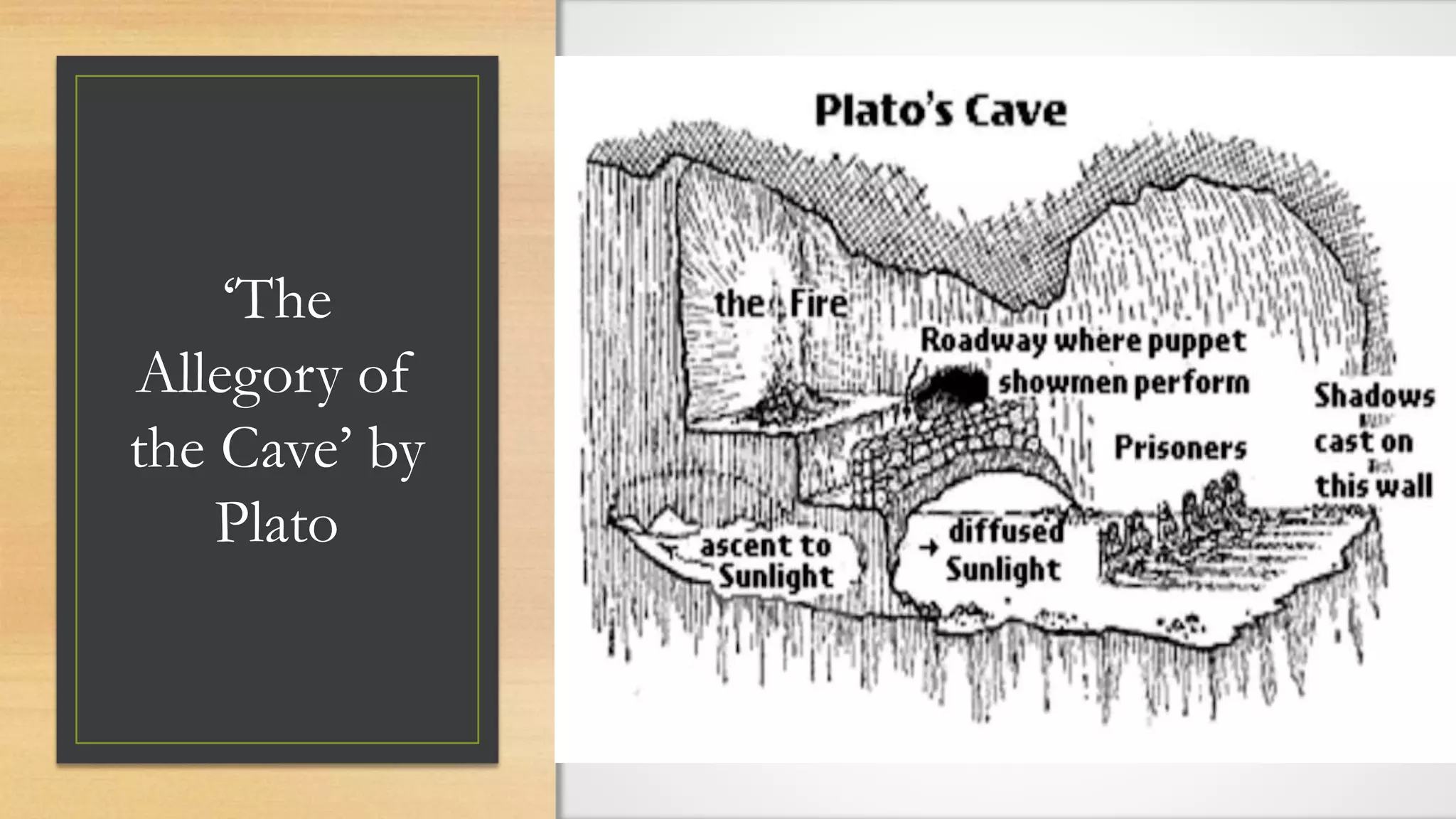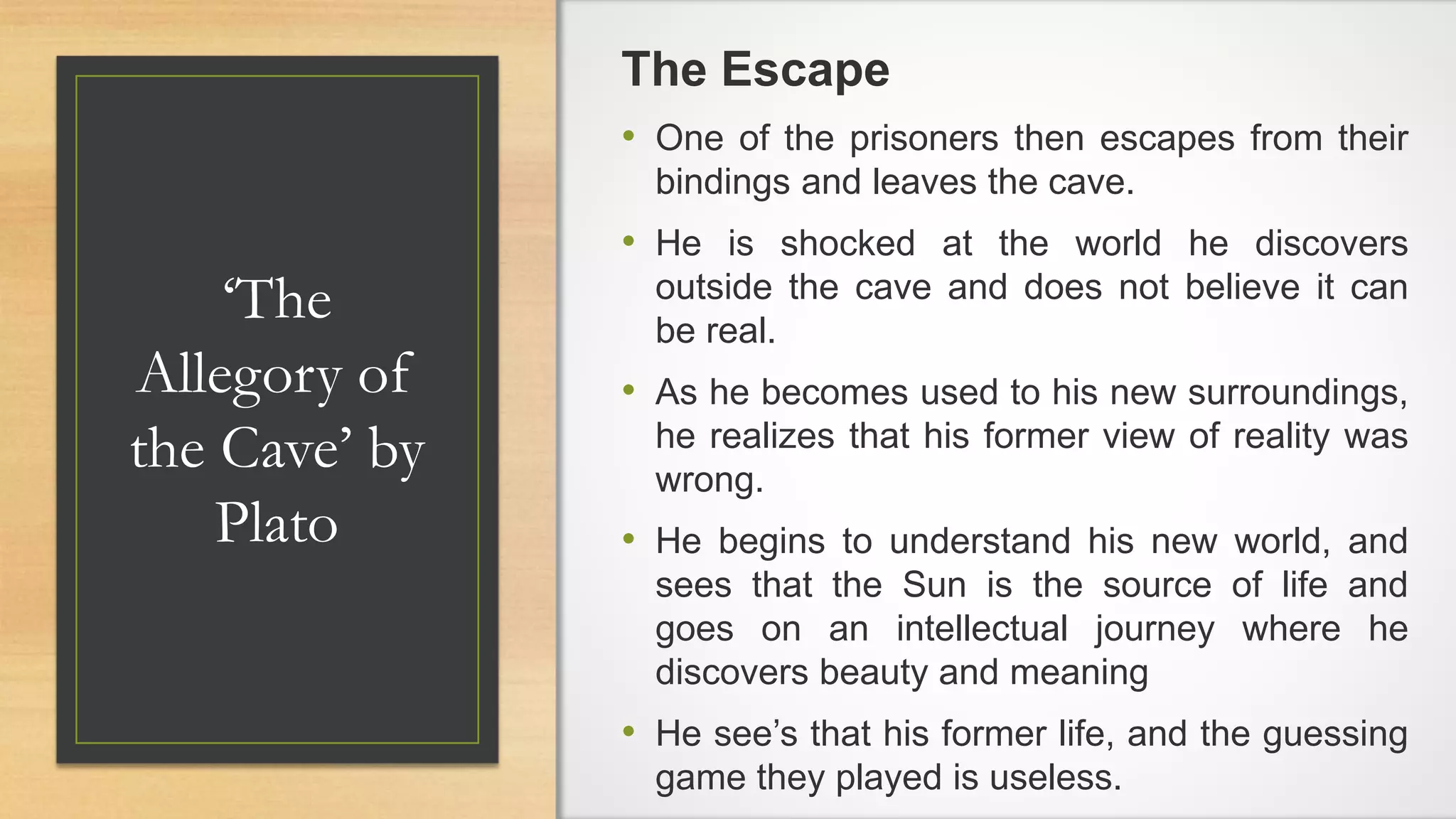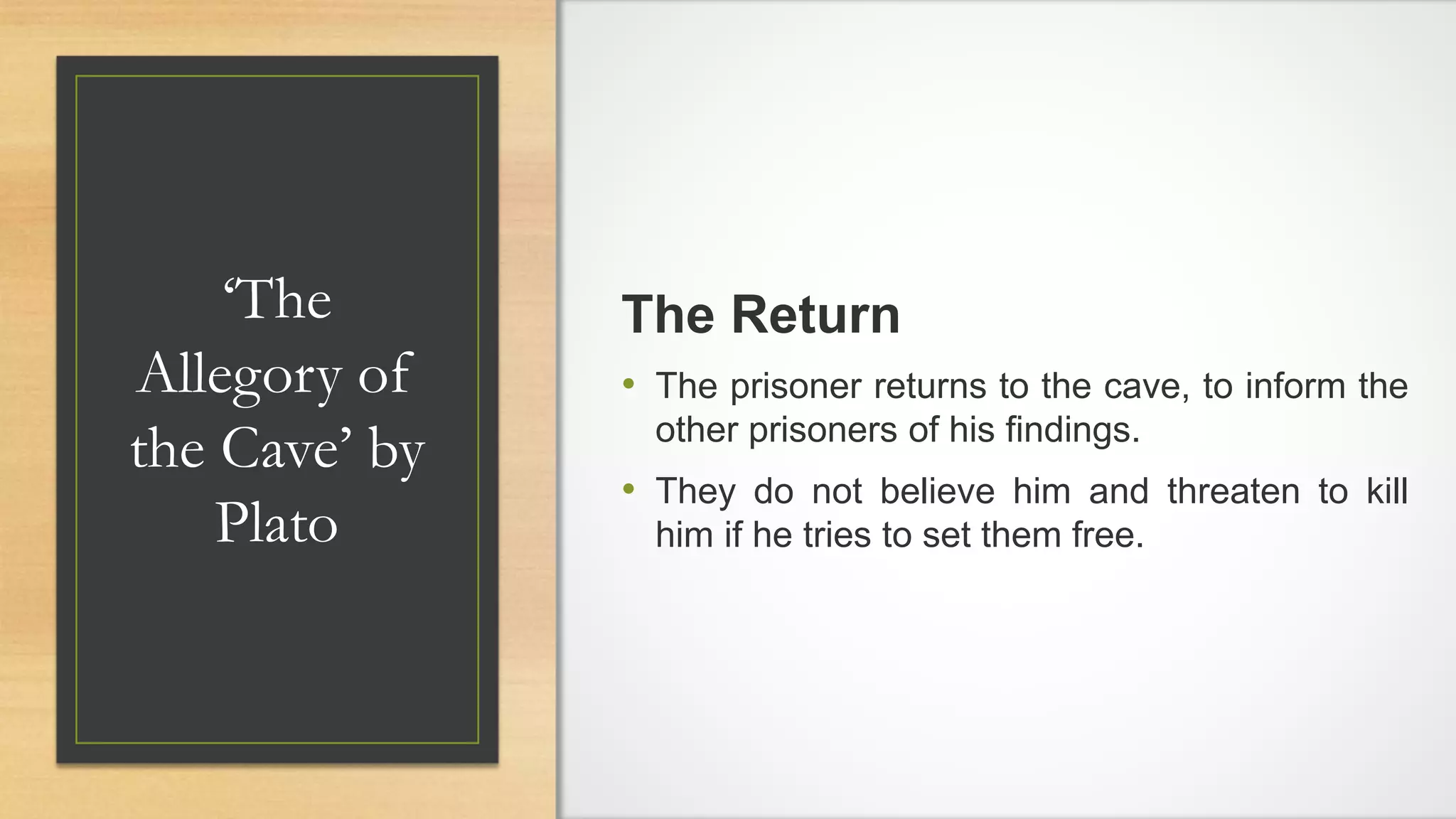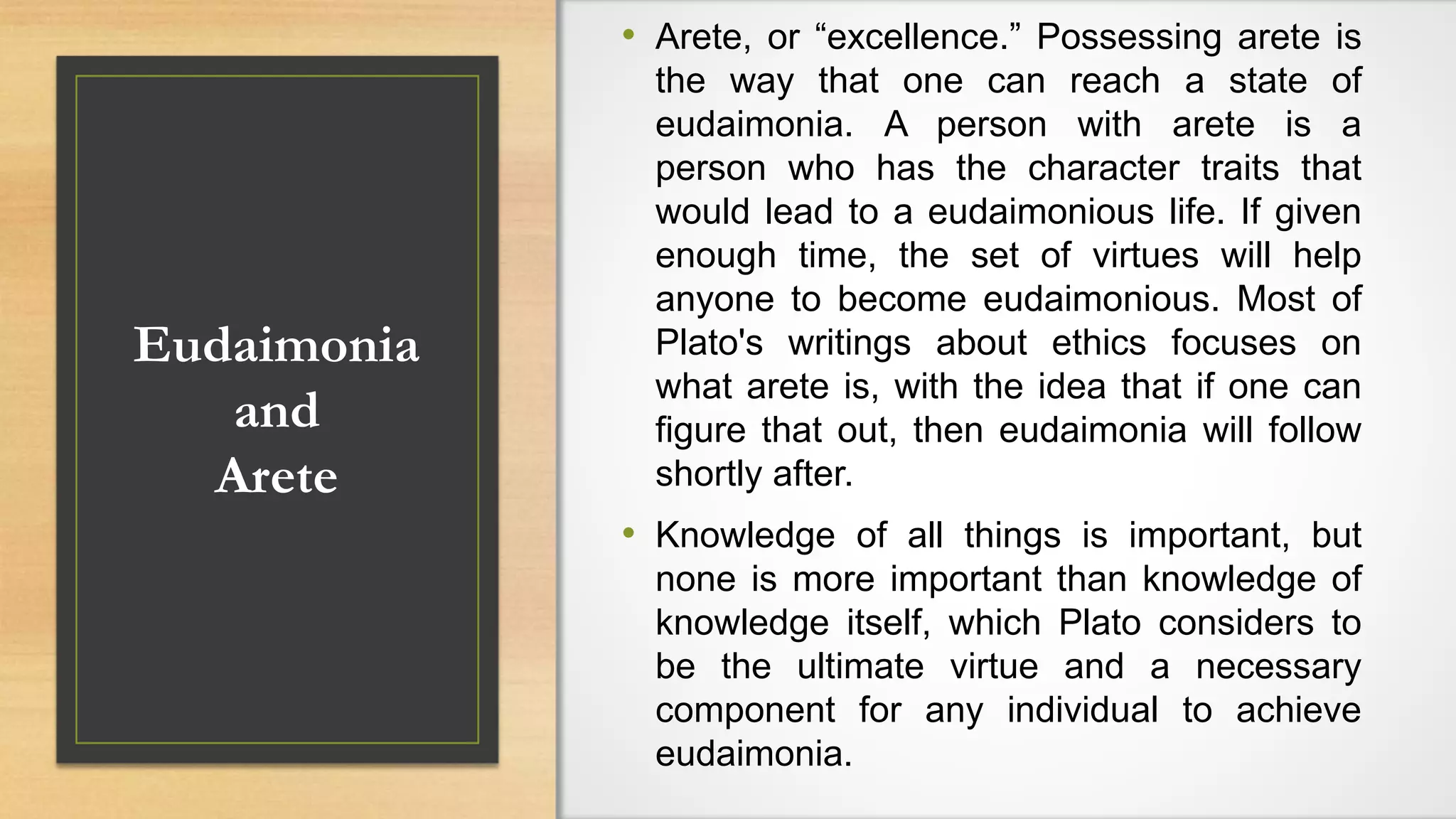Plato was an ancient Greek philosopher who founded the Academy in Athens, regarded as the first institution of higher learning in the Western world. He authored many influential works and developed theories like the Theory of Forms, which proposed that the physical world is merely a shadow of the ideal "Forms." Plato also created the Allegory of the Cave to distinguish those who mistake sensory knowledge for truth from those who see the truth. His writings explored virtue ethics and the ideal just state, and examined the tripartite theory that the soul has rational, spirited, and appetitive elements.



